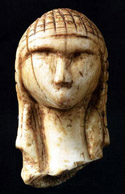Anthropology, Department of

Department of Anthropology: Faculty Publications
Document Type
Article
Date of this Version
August 1987
Abstract
The debate about the credentials of sociobiology has persisted because scholars have failed to distinguish the varieties of sociobiology and because too little attention has been paid to the details of the arguments that are supposed to support the provocative claims about human social behavior. I seek to remedy both dcfieieneies. After analysis of the relationships among different kinds of sociobiology and contemporary evolutionary theory, I attempt to show how some of the studies of the behavior of nonhuman animals meet the methodological standards appropriate to evolutionary research. I contend that the efforts of E. O. Wilson, Richard Alexander, Charles Lumsden, and others to generate conclusions about human nature are flawed, both because they apply evolutionary ideas in an unrigorous fashion and because they use dubious assumptions to connect their evolutionary analyses with their conclusions. This contention rests on analyses of many of the major sociobiological proposals about human social behavior, including: differences in sex roles, racial hostility, homosexuality, conflict between parents and adolescent offspring, incest avoidance, the avunculate, alliances in combat, female infanticide, and gene-culture coevolution. Vaulting Ambition thus seeks to identify what is good in sociobiology, to expose the errors of premature speculations about human nature, and to prepare the way for serious study of the evolution of human social behavior.


Comments
Published in Behavioral and Brain Sciences (1987) 10, 61-100. Copyright © 1987 Cambridge University Press. Used by permission.